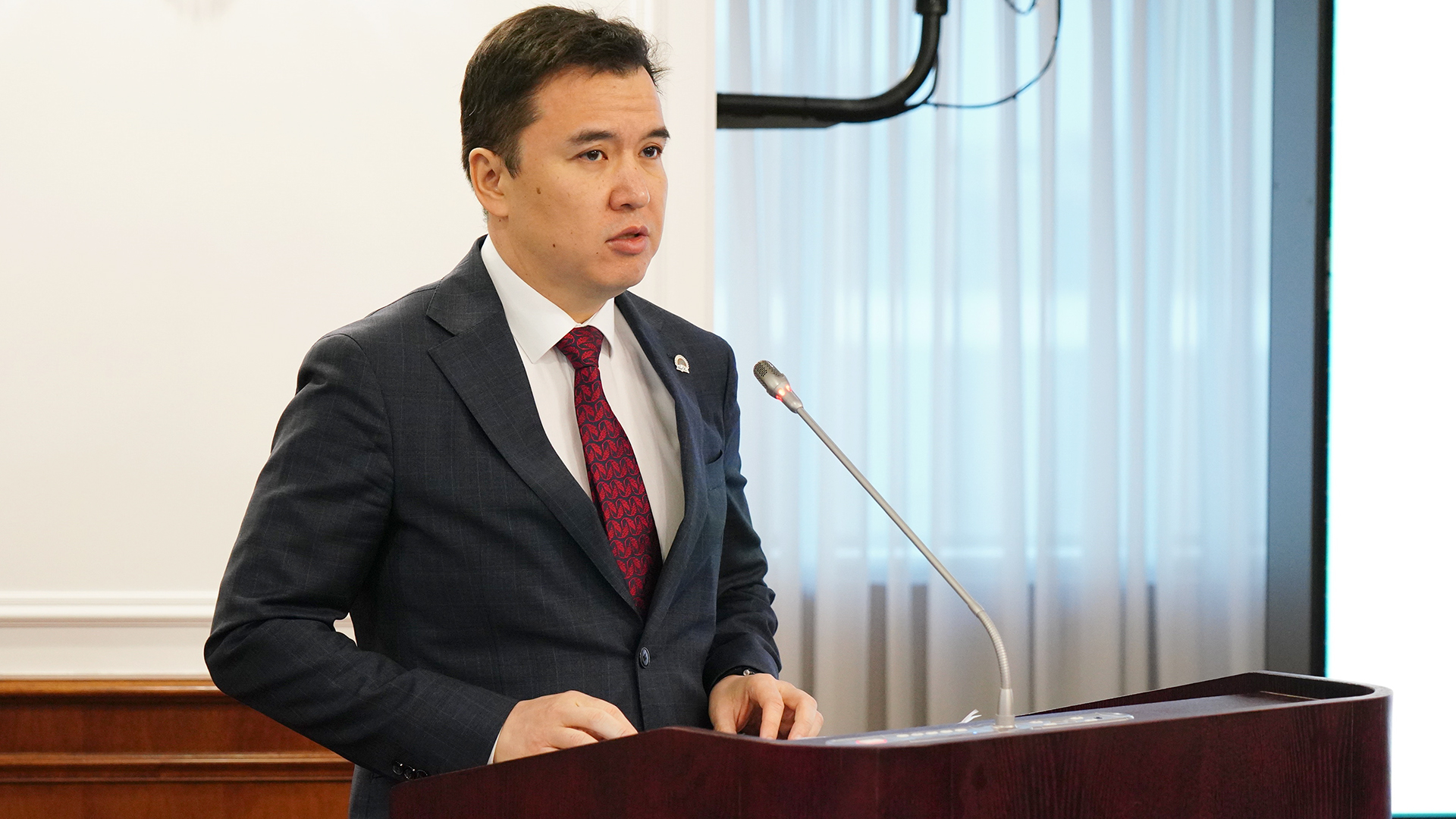02 April 2020, 10:13

At the Government conference call chaired by Prime Minister Askar Mamin, the Minister of National Economy Ruslan Dalenov reported on the updated macroeconomic forecast for 2020 as part of the socio-economic development forecast for 2020-2024 and the draft Decree of the Head of State on the Adjustment of the Guaranteed Transfer.
According to him, the main factors for updating the forecast are the unstable foreign economic situation, the emerging global recession and a slowdown in business activity against the background of protective measures for containing the coronavirus.
“Since the beginning of the year, oil prices have decreased by 65.7%, for metals by an average of 15.6%, global stock indices have declined by an average of 20.9%. As of April 1, 2020, oil quotes fell to $22 per barrel,” the minister said.
With this in mind, the average oil price for April-December 2020 defined at $20 per barrel. The estimated dollar rate is taken at 440 tenge per dollar and annual inflation in the range of 9-11%.
Amid low prices, the forecast for oil production was reduced by 4 million tons to 86 million tons. This leads to a decrease in mining production. At the same time, a decrease is expected compared to previously approved growth rates in the manufacturing industry, agriculture, construction and the services sector, including trade.
“Export will decrease by $16.3 billion to $35.1 billion. Import will decrease by $7.5 billion to $26.6 billion. Given the above factors, GDP is expected to decline by 0.9%. Nominal GDP is estimated at 69.7 trillion tenge, which is 4.8 trillion tenge lower than the approved forecast,” Dalenov informed.
Based on the adjusted macroeconomic forecast, the forecast of the parameters of the republican budget for 2020 is refined. Revenues of the republican budget excluding transfers in 2020 are estimated at 6,414.1 billion tenge, which is 1,672.3 billion tenge less than the approved plan.
According to the minister of national economy, the main decline is expected in terms of VAT, ETP for crude oil and revenues for the use of natural resources.
The revenue side of the budget takes into account all tax incentive and relaxation measures taken to implement the instructions of the Head of State. A property tax exemption has been established before the end of the year for large shopping facilities, shopping centers, cinemas, theaters, exhibitions and catering facilities, a hotel, hostels, and tourist activities.
“Individual entrepreneurs working in accordance with the generally established taxation procedure are exempted from individual income tax for up to the end of the year,” Dalenov said.
In order to support the agro-industrial complex, agricultural producers will not pay land tax on agricultural lands until the end of the year. The import of biological assets of the agro-industrial complex by the end of the year is also exempted from VAT. At the same time, the VAT rate was reduced from 12% to 8% for socially significant food products for the period from March 30 to Oct. 1.
As the minister emphasized, it is planned to release small and medium-sized businesses for 6 months until Oct. 1, 2020, from taxes and social payments from the wage fund (individual income tax, social tax, compulsory pension contributions, contributions and deductions for compulsory health insurance and social contributions).
This measure covers the sectors of tourism, catering, hotel business, large retail facilities, shopping centers, cinemas, theaters, exhibitions and sports and fitness facilities, trade entities, with the exception of the sale of food and drugstores, transportation services, consulting services and information technology.
In terms of tax administration, until June 1, 2020, a delay has been introduced for SMEs on the payment of all taxes and mandatory payments to the budget and social contributions (PIT, social tax, social and medical insurance for an employee).
In addition, for the period of the state of emergency, tax audits and forced collection of tax, customs and social debt were suspended. In general, all the above measures will cover 700 thousand taxpayers.
Dalenov also noted that in order to cover the expected shortfalls in budget revenues and to finance the anti-crisis package of measures, it is proposed to increase the guaranteed transfer from the National Fund by 2,070 billion tenge to 4,770 billion tenge in 2020.
In general, the republican budget expenditures are projected at 14,270.7 billion tenge with an increase of 1,356.4 billion tenge relative to the approved amount. The deficit is planned at 3.5% of GDP with an increase of 840.7 billion tenge. The level of non-oil deficit will be 10.8% of GDP.
Stay updated about the events of the Prime Minister and the Government of Kazakhstan - subscribe to the official Telegram channel
Subscribe